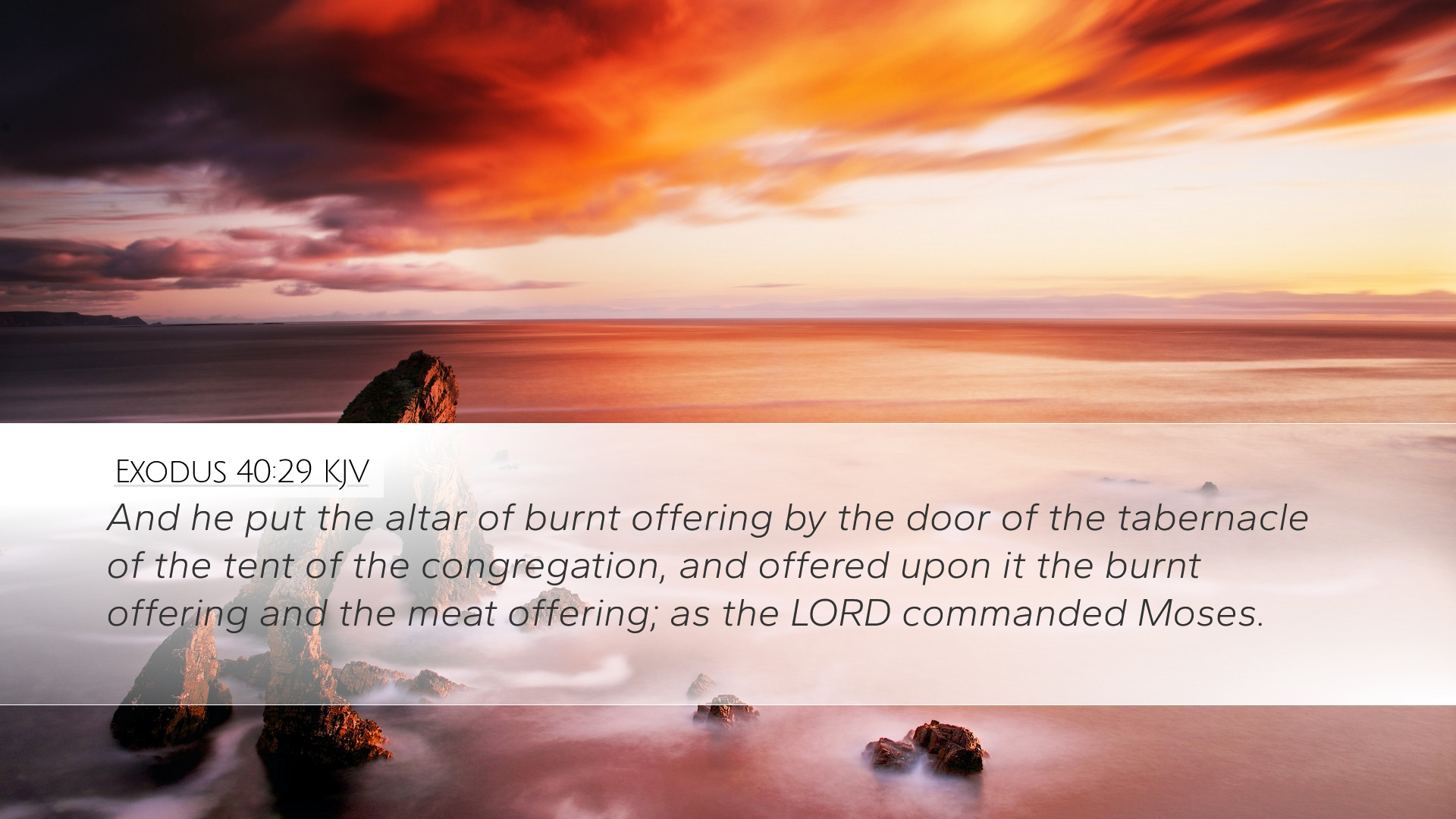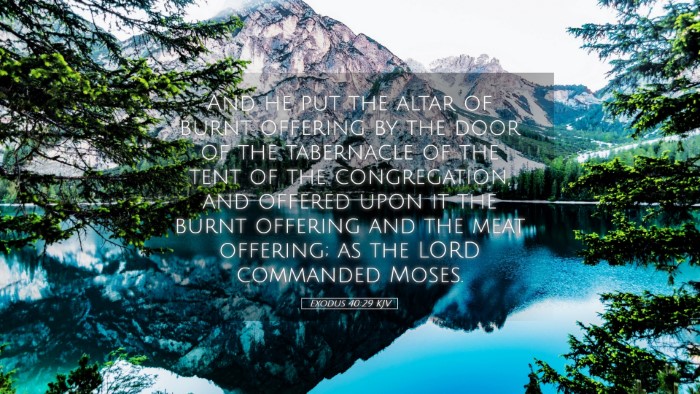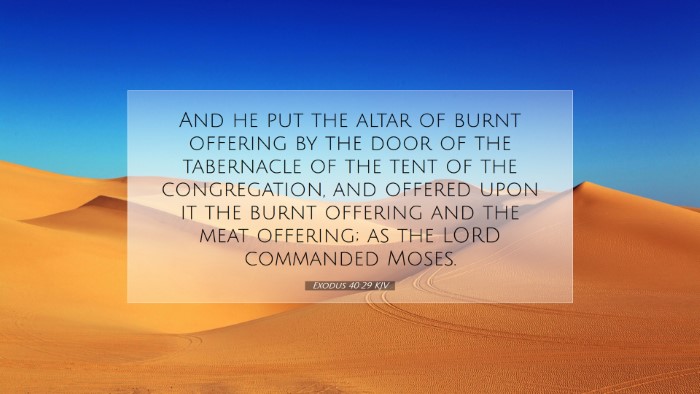Exodus 40:29 Commentary
Verse Context: Exodus 40:29 states, "And he put the altar of burnt offering by the door of the tabernacle of the tent of the congregation, and offered upon it the burnt offering and the meat offering; as the Lord commanded Moses." This verse concludes the detailed instructions God provided for the construction and consecration of the Tabernacle, underscoring the importance of obedience and ritual in worship.
Understanding the Significance of the Altar
The altar of burnt offering serves as a central element in the worship practices instituted by God. As noted by Matthew Henry, the altar symbolizes the proper approach to God through sacrifice, representing atonement and the necessity of reconciliation with the Divine. This act of sacrificing points to the larger theme of redemption that permeates the entire biblical narrative.
Albert Barnes remarks that the act of placing the altar at the entrance of the Tabernacle signifies the need for atonement and purification before one can enter into God's presence. It serves as a reminder of the seriousness of sin and the requirement for sacrifice, prefiguring the ultimate sacrifice of Christ in the New Testament.
Symbolism of the Burnt Offering
This verse highlights two types of offerings: the burnt offering and the meat offering. Adam Clarke explains that the burnt offering signifies total consecration and dedication to God, reflecting the worshiper's commitment and submission. The entire animal was consumed by fire, symbolizing the complete surrender of the offerer to the Divine will.
The meat offering, on the other hand, is understood as a gift of thanksgiving and a ritual acknowledgment of God's provision. Matthew Henry emphasizes that this combination of offerings illustrates the holistic nature of worship—both our need for atonement and our acknowledgment of God's blessings.
The Role of Obedience in Worship
A crucial aspect of Exodus 40:29 is the phrase "as the Lord commanded Moses." This reflects the theme of obedience that is foundational to the covenant relationship between God and Israel. Albert Barnes notes that such obedience is not merely a ritualistic following of rules but an expression of trust and faith in God's sovereign authority.
Matthew Henry further elaborates that true worship begins with obedience. The details surrounding the placement of the altar and the manner of offerings point to a God who is both transcendent and personal—He desires the heart of His people to be aligned with His will.
Lessons for Modern Believers
For pastors, students, and theologians today, Exodus 40:29 serves as a poignant reminder of the need for sacrifice and dedication in the life of a believer. Adam Clarke encourages reflection on one’s personal worship practices, questioning whether they align with God’s commands. Worship is not simply a personal endeavor but a communal act that must adhere to God’s ordained structures.
Moreover, in a contemporary context, this passage challenges believers to consider how they approach worship. Are we offering our lives as living sacrifices, fully devoted to God? Matthew Henry and Albert Barnes both illuminate that true worship comes from a heart surrendered to God, ready to offer all that we have in service to Him.
The Importance of Community Worship
The act of setting up the altar and conducting offerings in the communal context of the Tabernacle speaks to the importance of gathered worship. Matthew Henry emphasizes that worship is not solely an individual endeavor but a communal experience that strengthens faith and encourages accountability among believers.
As we gather, we remind one another of our shared need for redemption and God's grace, creating a culture of worship that fosters unity and purpose. This corporate aspect is essential; thus, the structure provided in Exodus—down to its smallest details—is a blueprint for fruitful communal worship.
Conclusion
Exodus 40:29 encapsulates essential principles of worship: the necessity of sacrifice, the importance of obedience, the dual nature of offerings, and the communal aspect of faith. The comments of Matthew Henry, Albert Barnes, and Adam Clarke provide profound insights that remain relevant to our understanding of worship today. Through examining this verse, we uncover a rich tapestry of theology that encourages deeper engagement with God—both in our personal practices and as a collective body of believers.


